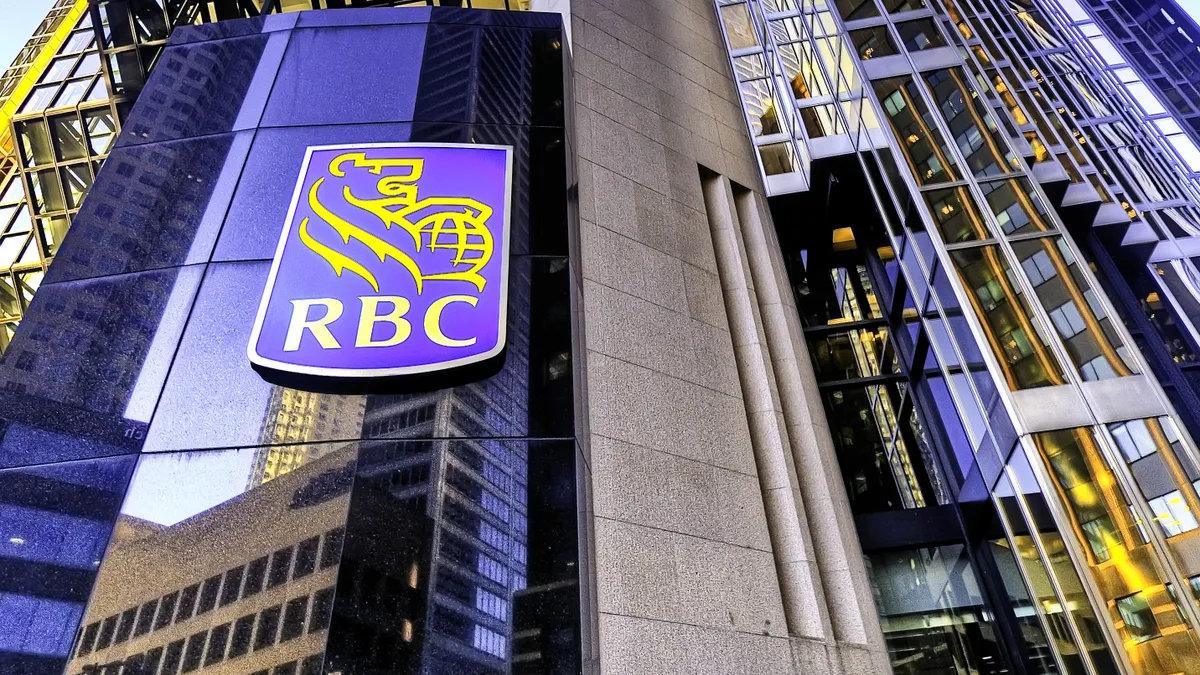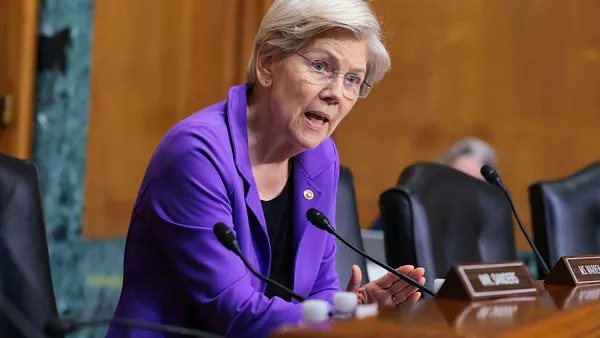Royal Bank of Canada supplanted JPMorgan Chase in 2022 as the world’s top financier to fossil-fuel companies, Rainforest Action Network found in an annual report released Wednesday.
RBC’s fossil-fuel funding — which includes lending and underwriting of debt and equity — jumped 4.2% last year to $42.1 billion, catapulting the Canadian lender to the top of the list from fourth place in 2021, according to RAN figures.
“RBC is really a critical financier for tar sands, which is problematic both from an environmental and a human rights perspective,” April Merleaux, RAN’s research manager, told Bloomberg. Tar sands financing accounts for $4.8 billion of RBC’s total, RAN found.
Richard Brooks, climate finance director at Stand.earth, a Canadian environmental group, called RBC’s ascent in the rankings “obscene.”
“RBC is moving in completely the wrong direction, dragging our climate ambitions backwards and positioning Canadian banks as fossil fuels’ lenders of last resort,” Brooks told the Financial Times.
RBC’s new turn as a leading climate target may speak more to where other banks are cutting back.
JPMorgan, which had held the top spot in RAN’s rankings each year since 2016, decreased its fossil-fuel funding by 41.7% to $39.2 billion in 2022. Other large U.S. banks made similar strides: Citi cut its fossil-fuel financing by 27.7% year-over-year, by RAN’s measure. Wells Fargo, likewise, saw a 21.8% decrease.
But U.S. banks aren’t off the hook. They round out the top five on RAN’s list after RBC. U.S. banks accounted for 28% of all fossil-fuel financing in 2022, RAN found.
RBC isn’t alone among Canadian banks in the top 10. Scotiabank and TD rank seventh and eighth, respectively — fueling an augment that Canadian banks were becoming lenders of last resort on projects European banks had refused. Canadian banks have provided $862 billion to fossil-fuel companies since the 2015 Paris Agreement was signed, RAN found.
RBC spokesman Andrew Block defended his bank’s net-zero policy in a statement to Bloomberg.
“We are actively working with our clients, governments and many stakeholders toward a net-zero economy,” Block said. “This includes financing for renewable-energy projects and providing capital to clients in higher-emitting sectors to support their transition journeys as there aren’t enough renewables available today to power our world.”
RBC said RAN’s report doesn’t take into account the bank’s progress toward climate goals. The bank set out last year to cut by 35% the Scope 1 and Scope 2 emissions generated by its oil and gas clients’ operations by 2030, compared with figures from 2019. The bank also wants to reduce its Scope 3 emissions by up to 27% in the same span, it said.
But Merleaux said breaking down emissions goals by intensity, rather than looking at absolute emissions, creates a loophole, allowing RBC to boost lending to high-emissions clients as long as their processes become more efficient.
Indeed, 49 of the 60 banks measured in the RAN study have made net-zero pledges. Forty-three are members of the Net Zero Banking Alliance.
However, fossil-fuel financing from the 60 banks declined 16% between 2021 and 2022 because of “unusual geopolitical and economic conditions, not shifts in bank policy,” RAN said.
Russia’s war on Ukraine spawned an energy crisis, giving several oil and gas companies record profits. As a result, ExxonMobil and Shell, for instance, asked for no financing from banks in 2022, according to the Financial Times.











